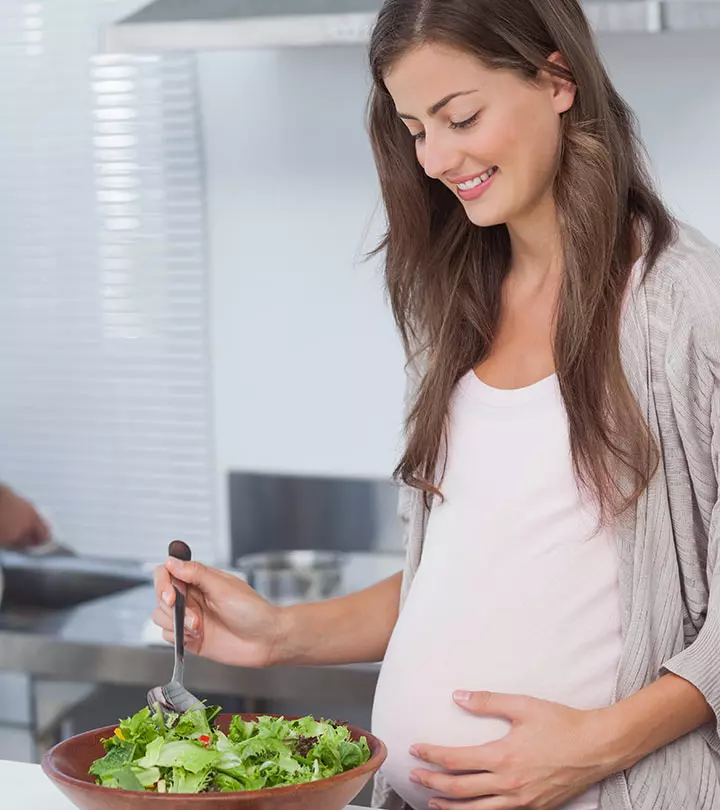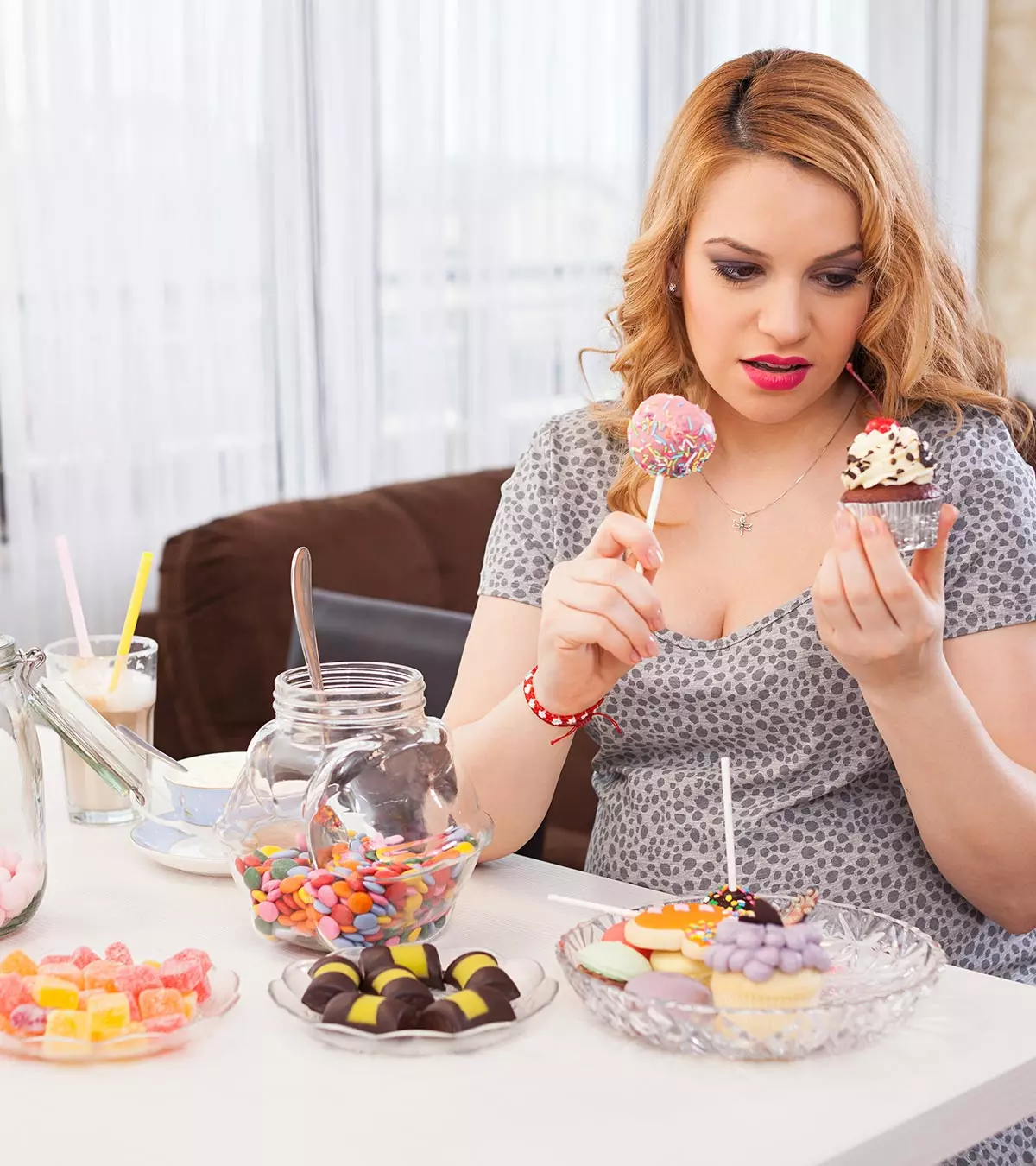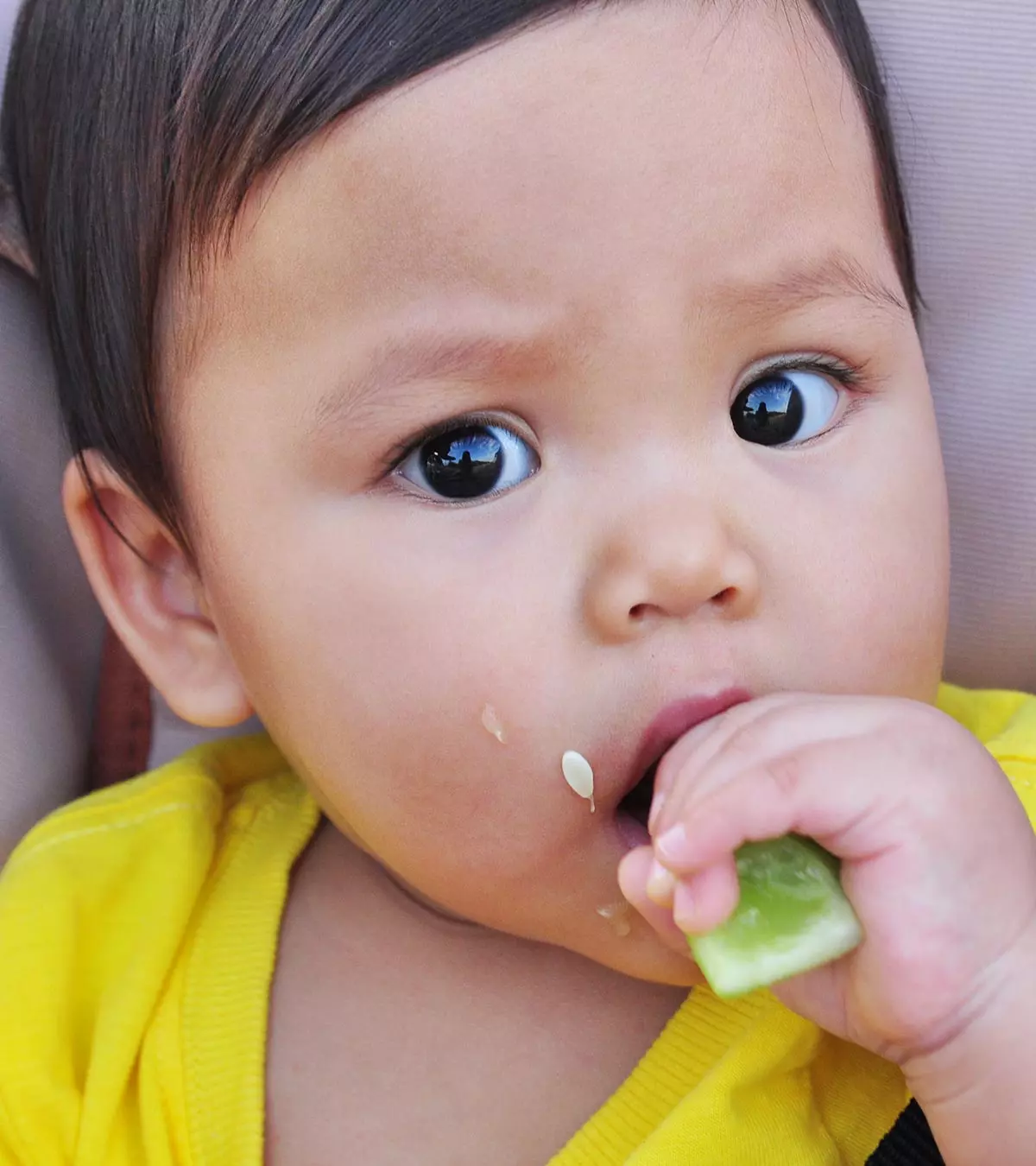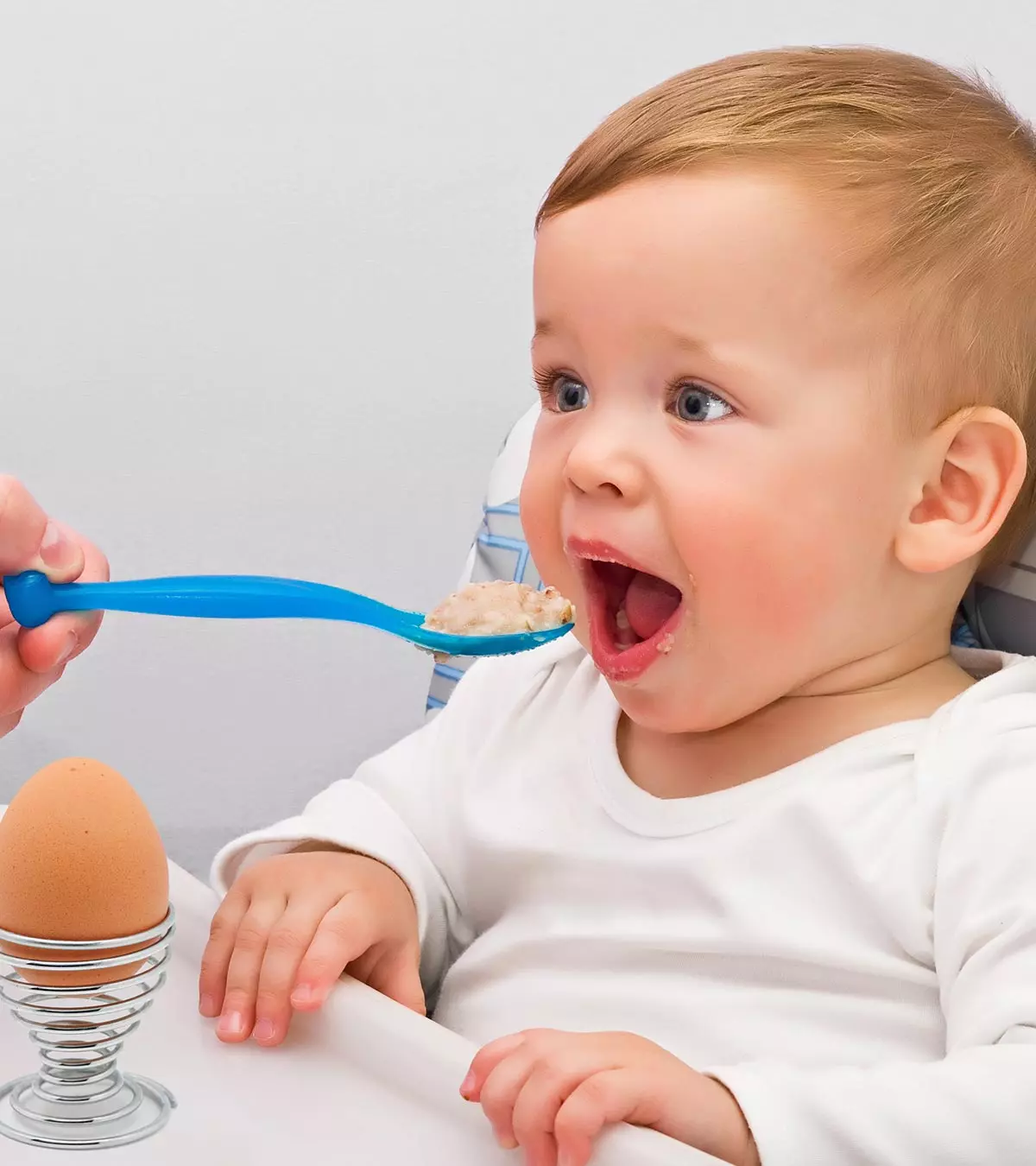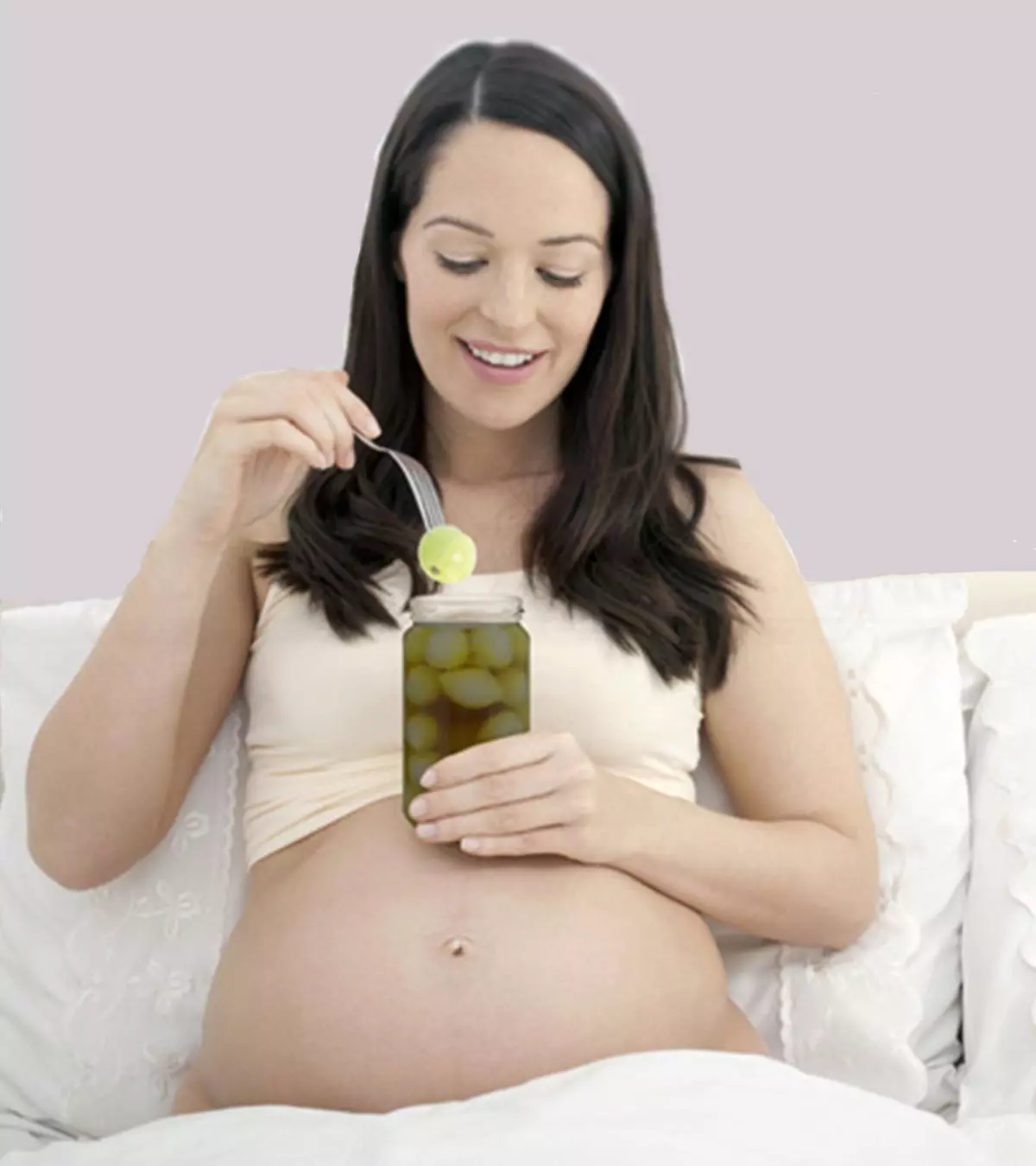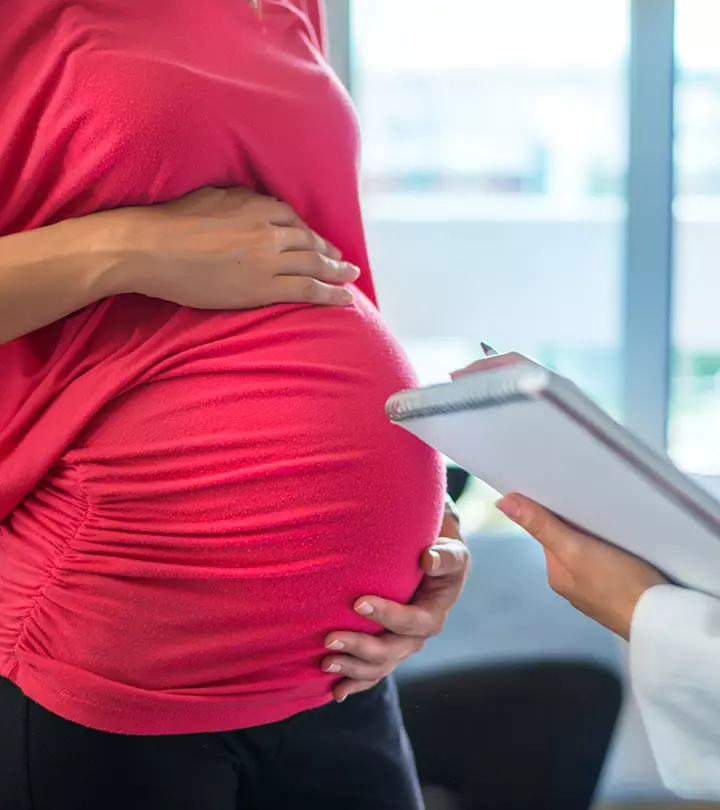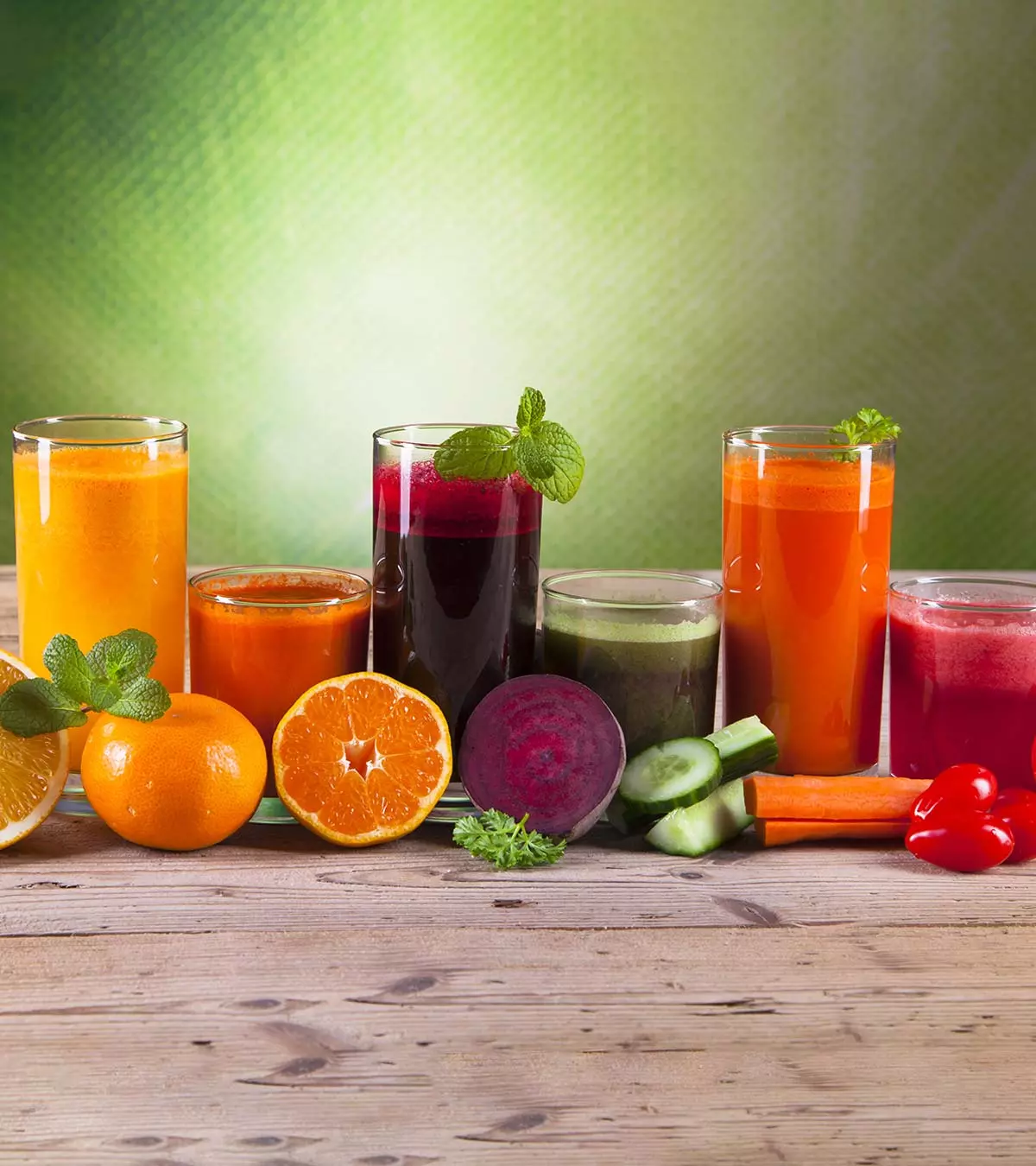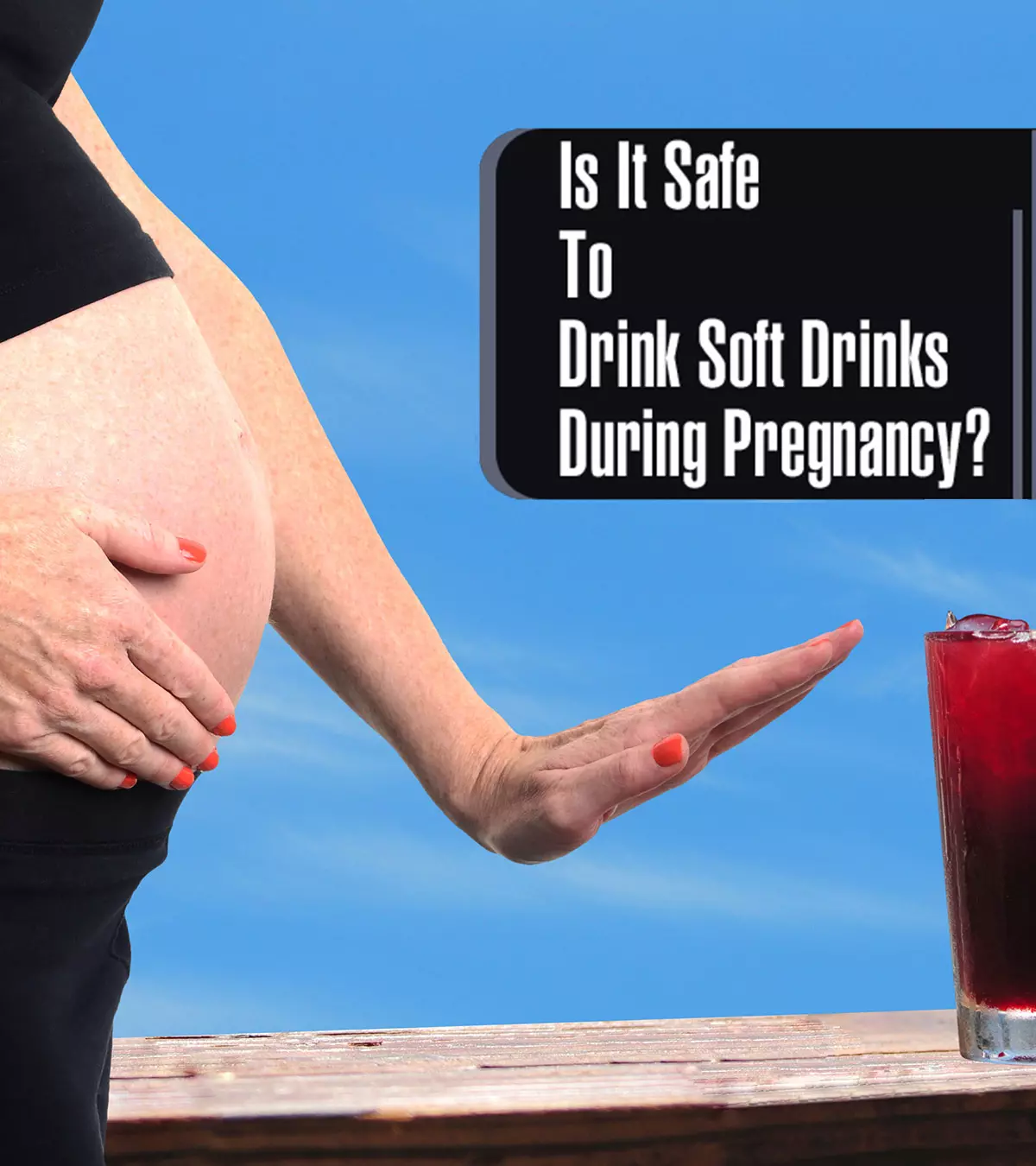
Image: Shutterstock
If you are expecting, you should be mindful of the foods and beverages you consume since your diet directly influences your baby’s growth. Therefore, if you enjoy carbonated beverages, here are some effects of cold drinks during pregnancy you should be aware of. Certain foods and beverages may negatively impact fetal development. Aerated soft drinks contain a lot of caffeine, which can be harmful to your baby since it may lead to preterm births and other perinatal complications.
Moreover, consuming soft drinks in large quantities is even harmful to the general population. Therefore, many doctors believe that restricting soda consumption during pregnancy is beneficial to fetal and maternal health. Your doctor may allow you to drink a certain amount of carbonated or cold drinks. However, since each pregnancy is unique, you should obtain medical counsel to determine the optimal daily limit for soft drinks.
So, if you are pondering the question ‘Can you drink soda while pregnant’, we have tried to answer it for you. Continue reading to learn more about the risks of drinking carbonated drinks during pregnancy.
Key Pointers
- Aerated soft drinks contain excessive amounts of caffeine that may harm the fetus.
- Soft drinks may increase the risk of congenital disabilities, preterm labor, or miscarriage in pregnant women.
- Soft drinks contain added colors and artificial sweeteners, which are not recommended during pregnancy.
- They also contain unhealthy calories that lead to increased calorie intake without the benefit of vitamins and minerals.
- Soft drinks may trigger heartburn, linked to weight gain, and other health issues.
- Occasional and limited consumption of soft drinks is vital for a healthy pregnancy.
Harmful Effects Of Soft Drinks During Pregnancy
Obstetrician and gynecologist Dr. Himali Maniar Patel advises, “Regular soda is high in sugar, which can contribute to gestational diabetes. Diet soda, while lower in sugar, contains artificial sweeteners that haven’t been extensively studied in pregnancy. Caffeine in soda can also affect the fetus. Therefore, it’s ideal to minimize soda consumption overall.”
You should also be aware of why taking such drinks on a regular basis is harmful to you.
1. Presence of caffeine
One of the sole reasons why you should avoid drinking soft drinks during pregnancy is that it contains caffeine. Studies conducted by the American Pregnancy Association reveal that pregnant females who consume over 200mg of caffeine a day, are twice as likely to experience a miscarriage. Moreover, caffeine may also cause high blood pressure, birth defects, preterm labor, premature delivery, reduced fertility, and low birth weight, and other reproductive problems as well (1). Hence, it is essential that you limit the intake. Moreover, caffeine can also deprive you of sleep and deplete the calcium levels in your body (2). Caffeine also has a diuretic effect on the body, meaning they may increase urine production and contribute to dehydration if consumed in excess. Hence, it is essential to limit your daily caffeine consumption within the recommended levels.
 Quick fact
Quick fact2. Added colors and artificial sweeteners
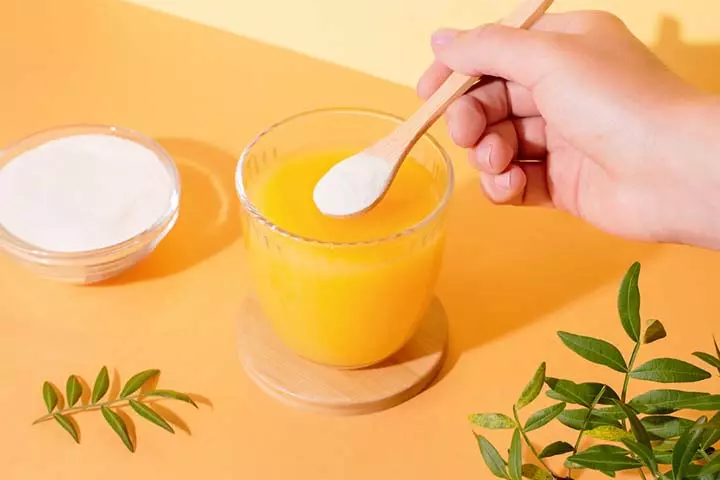
Image: Shutterstock
Though a small percentage of artificial ingredients would not harm your baby’s health, studies reveal that huge amounts of soft drinks that have artificial flavors or colors are not advisable. Also, the presence of saccharin in some soft drinks may be harmful to the fetus owing to its carcinogenic properties (3).
A few studies indicate that the consumption of artificial sweeteners during pregnancy, such as aspartame or sucralose, is not harmful if consumed in small amounts. In addition, regular or excess consumption of soft drinks during pregnancy can raise an expecting woman’s risk of developing gestational diabetes. This risk increases multi-folds if the mother already has type-1 or type-2 diabetes.
So, make sure to read the label of the soft drinks that you buy to make sure that there are no harmful ingredients that are not good for your baby.
3. Zero nutrition and unhealthy calories
Soft drinks offer very little or no nutrition, which means that they add no value to the well-being of a pregnant mother (4). But these drinks can hike your body’s calorie levels. In short, these carbonated drinks would not offer any vitamins or minerals, which are much needed for the fetal growth and development. If you are obsessed with fizzy stuff, a sip or two of your favorite soda occasionally would not do any harm.
 Did you know?
Did you know?4. Aerated drinks trigger heartburn
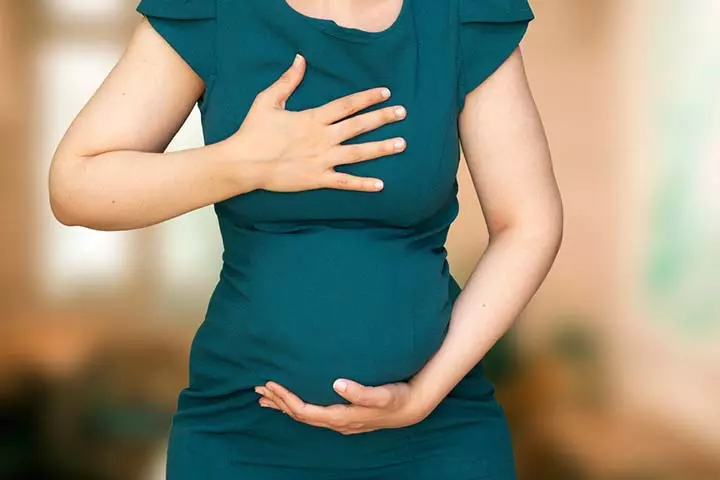
Image: Shutterstock
Drinking carbonated drinks during pregnancy can cause heartburn or make it worse if you already have it, especially during the third trimester (5). If you experience a burning sensation across the chest region or just below your throat after a few minutes of consuming any aerated drink, refrain from drinking it.
Frequently Asked Questions
1. Is it okay to drink coke while pregnant?
You may drink clear water and other healthy liquids than the drinks packed with extra sugars, caffeine, and artificial flavors and colors. It is not a healthy choice for pregnant women to drink artificially sweetened beverages. According to a study, people who consume diet sodas gain excess weight (6). In addition, some studies found that artificially sweetened drinks are associated with maternal obesity, resulting in increased fetal weight or heavy babies. The consumption of Coke during pregnancy raises similar concerns due to its high sugar and caffeine content. Hence, limiting your total sugar intake from different foods and beverages, including soft drinks, is beneficial.
2. How often can you have soft drinks while pregnant?
Occasional intake of sweetened soda or lemonade is not a concern, especially for mothers who follow a healthy balanced diet and regular exercise. You may drink liquids without added sugars to avoid getting empty calories. Also, keep an eye on the caffeine content and other added flavors (6).
3. Which cool drink is good for pregnant women?
Pregnant women need to stay hydrated, and cool drinks such as cold water, coconut water, iced teas, and cold fruit juices can be a refreshing way to do so. Choosing the right drinks during pregnancy is important for both the mother’s comfort and the baby’s health.
4. Can pregnant people drink Coke Zero (diet soda)?
Research shows that if expecting mothers consume excessive artificial sweeteners-laden diet soda, they may deliver heavier babies (9). The artificial sweeteners used in Coke Zero are aspartame and acesulfame potassium (10). When consumed in moderation, the FDA considers these sweeteners to be safe during pregnancy (11).
5. Why does my baby move when I drink cold water or drink?
Babies in the womb may respond to stimuli in their environment, such as changes in temperature and sound (12). Therefore, you may feel your baby moving in the womb when drinking cold water or drinks. However, this response may or may not occur in all babies.
Having occasional cold drinks will not harm you or your baby. However, ensure that you don’t drink them frequently as cold drinks are high in unhealthy ingredients, such as sugar and caffeine, and may contain additives that can adversely affect you and your unborn baby. Thus, making yourself a fresh lemonade or chilled fruit smoothie is ideal if you crave a cold drink. Consuming these healthy alternatives to cold drinks will refresh you, provide several nutrients, and keep you away from the ill effects of cold drinks during pregnancy.
Infographic: Effects Of Soft Drinks During Pregnancy And Healthy Alternatives
The impact of beverages on pregnancy is essential to consider. Soft drinks are popular beverages with high sugar, caffeine, and other artificial ingredients. While they may be a tempting treat, it’s important to be aware of the effects of soft drinks on pregnancy. Explore the potential side effects and a few healthy alternatives to try. Illustration: Momjunction Design Team
Illustration: Drinking Soft Drinks During Pregnancy: 4 Harmful Effects

Image: Dall·E/MomJunction Design Team
References
- Caffeine During Pregnancy; American Pregnancy Association
https://americanpregnancy.org/healthy-pregnancy/pregnancy-health-wellness/caffeine-intake-during-pregnancy/#:~:text=Due%20to%20conflicting%20conclusions%20from - Caffeine; US National Library of Medicine
https://medlineplus.gov/caffeine.html - N Cohen-Addad, et al; In utero-exposure to saccharin: a threat? National Library of Medicine
https://pubmed.ncbi.nlm.nih.gov/3756841/ - Pregnancy and Nutrition; US National Library of Medicine
https://medlineplus.gov/pregnancyandnutrition.html - Juan C Vazquez, Heartburn in pregnancy; US National Library of Medicine
https://www.ncbi.nlm.nih.gov/pmc/articles/PMC4562453/ - Why pregnant women should avoid artificially sweetened beverages.
https://www.health.harvard.edu/blog/pregnant-women-avoid-artificially-sweetened-beverages-201605179714 - Caffeine Content Of Popular Drinks.
https://www.math.utah.edu/~yplee/fun/caffeine.html - See How Much Sugar is in Soda Juice Sports Drinks and Energy Drinks.
https://nutritionsource.hsph.harvard.edu/healthy-drinks/sugary-drinks/how-sweet-is-it/ - Why pregnant women should avoid artificially sweetened beverages.
https://www.health.harvard.edu/blog/pregnant-women-avoid-artificially-sweetened-beverages-201605179714 - Question: What is aspartame?
https://www.coca-colacompany.com/about-us/faq - Artificial Sweeteners and Pregnancy
https://americanpregnancy.org/healthy-pregnancy/is-it-safe/artificial-sweeteners-and-pregnancy/ - Helen P. Laburn et al; (2002); Effects on fetal and maternal body temperatures of exposure of pregnant ewes to heat
cold
Community Experiences
Join the conversation and become a part of our nurturing community! Share your stories, experiences, and insights to connect with fellow parents.
Read full bio of Dr. Meenu Vashisht Ahuja
- Dr. Himali M Patel is an Ahmedabad, India based gynecologist with 13 years of experience. She currently practices at Nisha Women's Hospital and IVF Centre. Dr. Patel did her graduation in Medicine at Bharati Vidyapeeth University, Pune and holds a diploma in Obstetrics and Gynecology.
 Dr. Himali M Patel is an Ahmedabad, India based gynecologist with 13 years of experience. She currently practices at Nisha Women's Hospital and IVF Centre. Dr. Patel did her graduation in Medicine at Bharati Vidyapeeth University, Pune and holds a diploma in Obstetrics and Gynecology.
Dr. Himali M Patel is an Ahmedabad, India based gynecologist with 13 years of experience. She currently practices at Nisha Women's Hospital and IVF Centre. Dr. Patel did her graduation in Medicine at Bharati Vidyapeeth University, Pune and holds a diploma in Obstetrics and Gynecology.
Read full bio of Anshuman Mohapatra
Read full bio of Swati Patwal
Read full bio of Dr. Joyani Das







